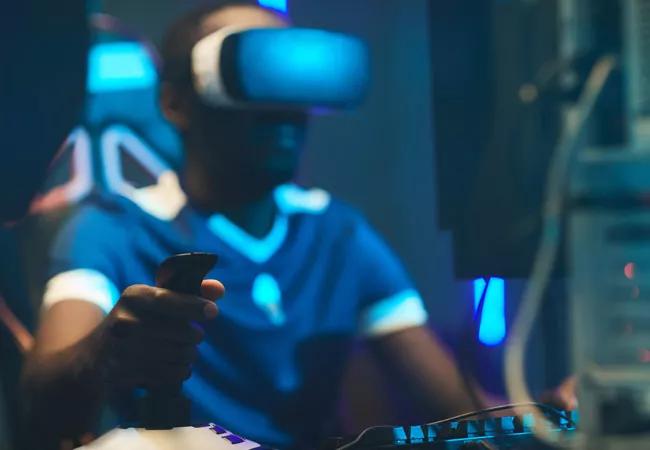How clinicians are providing care for esport athletes

Electronic competitive video gaming has taken the world by storm. It’s now a billion-dollar industry with more than 150 U.S. colleges offering varsity esports teams.
Advertisement
Cleveland Clinic is a non-profit academic medical center. Advertising on our site helps support our mission. We do not endorse non-Cleveland Clinic products or services. Policy
Esports, however, are not without injury, and medical professionals are taking notice. “Like any other professional or collegiate sport, injuries can occur,” says Dominic King, DO, a sports medicine physician and Director of the new Esports Medicine Program within Cleveland Clinic Sports Health.
Esport athletes are vulnerable to a number of overuse injuries such as wrist and hand pain, neck and back pain, as well as vision fatigue, nutritional and physiological stressors.
Unlike traditional sports leagues, the industry lacks a regulatory body to enforce guidelines that protect athletes. Dr. King hopes that this program – and others like it – will begin to change that paradigm. “It’s not that competitive gaming isn’t embraced by the sports medicine community, there is simply a lack of awareness about what the clinical needs are for this patient population,” he says. “We are trying to change that.”
Dr. King began the foundational work to establish the program nearly two-and-a-half years ago, and has developed comprehensive recommendations to promote injury prevention and recovery.
A new partnership between University of Akron and Cleveland Clinic Esports is aligning more student esport athletes with sports health services, while also fueling collaborative research efforts to better understand the medical needs of these players. Dr. King and his team will work with these individuals to develop neurocognitive and ergonomic evaluations, as well as consultations related to nutrition, fitness, training and psychology.
Advertisement
Research on video gaming has been around for several decades, according to Dr. King, but the field’s rise in popularity of organized competitive gaming, like esports, has ushered in a new demand to better understand and treat this patient population—and that is exactly what experts like Dr. King and his team are doing.
As the program continues to grow, Dr. King hopes to provide clinical guidance to individual esport athletes and teams, as well as the gaming industry at large. He also stresses to both esport coaches and officials, as well as colleagues in medicine, that this new focus in competitive gaming warrants the same attention to player safety that is seen in other sporting industries.
“This is new territory for sports medicine clinicians. This industry isn’t going anywhere—we must adapt and develop new models of care for injury prevention and treatment as well as the performance enhancement of esport athletes,” he says.
Advertisement
Advertisement

How it’s similar but different from the direct anterior approach

Collaboration must cross borders and disciplines

Systematic review of MOON cohorts demonstrates a need for sex-specific rehab protocols

Should surgeons forgo posterior and lateral approaches?

How chiropractors can reduce unnecessary imaging, lower costs and ease the burden on primary care clinicians

Why shifting away from delayed repairs in high-risk athletes could prevent long-term instability and improve outcomes

Multidisciplinary care can make arthroplasty a safe option even for patients with low ejection fraction

Percutaneous stabilization can increase mobility without disrupting cancer treatment